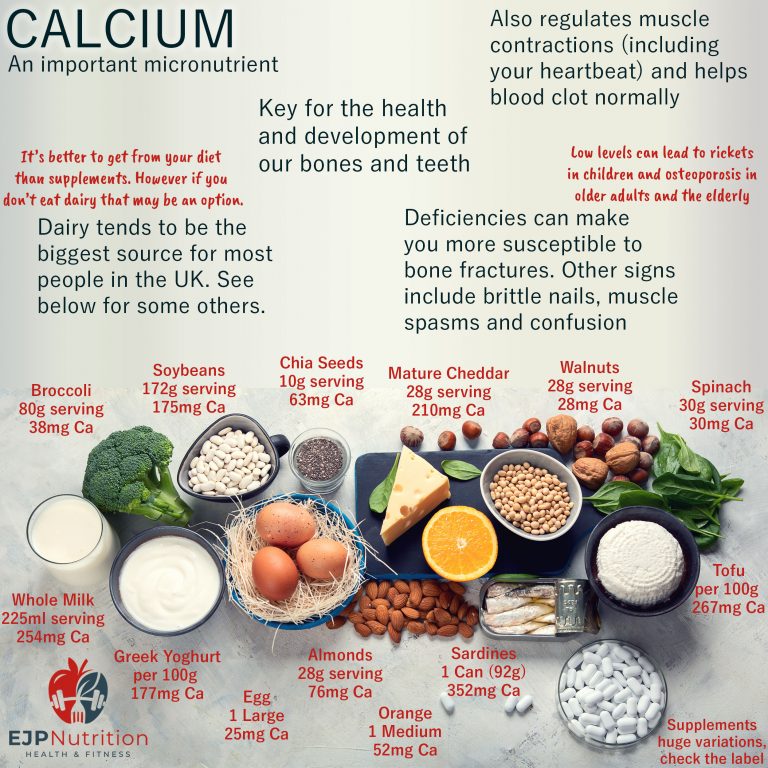Why do we need calcium in our diets? Most people know it helps build bones and teeth. But it also plays a roll in regulating muscle contractions (including your heartbeat), and it helps your blood clot normally.
How much?
Its recommended adults get 700mg per day, preferably from your diet. If you consume dairy, that tends to be a primary sources of calcium; milk, cheese, yoghurt etc. Some plant-based alternatives are fortified, but generally have lower levels. Other sources are; green leafy veg (spinach is lower than kale amongst others), soya beans, tofu, nuts, bread or baked goods made with fortified flour and fish where you eat the bones, like sardines.
Calcium and vitamin D intake are often linked. The latter improves bone health as it supports the absorption of calcium. Together they reduce the risk of bone loss and fracture risk for the elderly. So being deficient in vitamin D can have a knock-on effect with how well the calcium you consume is used. Without enough calcium, bone breakdown occurs as the body takes it from the stores (in the bones) to use it to maintain necessary biological functions.
One review on Ca supplementation concluded dietary calcium may be better than supplements (the former being easier to absorb), although different dosages will give different results. Sufficient amounts are needed to prevent or delay osteoporosis, and is also important for children and adolescents who are growing.
Other Health Benefits?
Calcium is potentially protective against cardiovascular disease. It may slightly adjust lipid profiles and reduce blood pressure and also the risk of developing hypertension. For pregnant women calcium is important to reduce the risk of pre-eclampsia.
Another note that dieting can often lead to various deficiencies (largely because you are consuming less food, and likely less variety). A study noted even the “healthier” Mediterranean diet, as well as others diets like Paleo were suboptimal and at risk of not having enough folate, fibre or calcium.
So all in all, lots of reasons to check you are getting enough calcium in your diet. If you don’t have dairy then you may need more planning. Need any help with this, send me a message.
References: Mac Nutrition Uni, Nhs website, Chronometer, Hill et al 2013, Li et al 2018, Tully 2016
(Reposted from Instagram)


